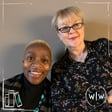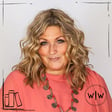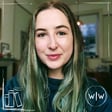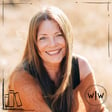
#160 - Emily-Jane Clark
Children's author and comedy writer, Emily-Jane Clark joins us to talk about "The Beasts of Knobbly Bottom", switching between children's adult writing and how she makes a similar process work across both.
Listen to the extended episodes early and ad-free on Patreon!
Support the show on Patreon, chat with Jamie and other guests on the Discord server and get all of the episodes ad free.
The Chosen Ones and Other Tropes
Jamie, Melissa and Noami talk about all things writing, tropes and publishing!
Get a whole month with WriteMentor's Hub for free using the coupon code 'Write&Wrong'.
Click here to find all of our guests' books as well as the desert island library over at bookshop.org.
Click on this referral link to get 30% off your first three months with Zencastr.



















